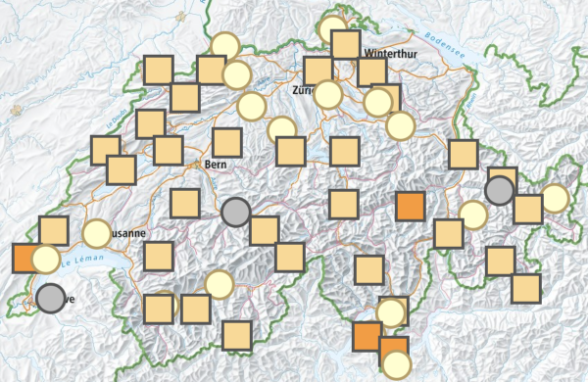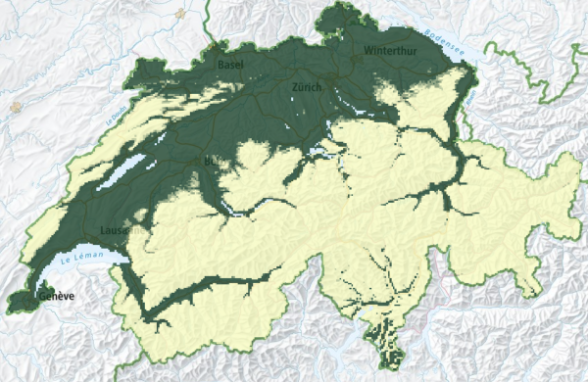Practice- and policy-relevant robust scientific information on potential effects of increasing temperature and changing precipitation regimes on forest ecosystems is a prerequisite for modern, sustainable forest management. The NCCS priority theme “Forest functions and climate change” aims for the integration and synthesis of existing forest and climate information and the development of innovative new tools supporting communication and outreach for societal, economic and political decision making.

Forests provide a variety of ecosystem services, ranging from wood production, provision of clean drinking water, regulation of the local climate, preservation of biodiversity, habitat for animals and plants to protection against natural hazards and the provision of recreational areas. Forests intensively store carbon and thus represent the largest terrestrial CO2 sink.
Climate change is occurring at a pace that mostly prevents evolutionary adaptation of trees and will thus have strong impact on the vitality, the function and the services of forests and on the habitat suitability of native tree species. Drought and high temperatures can jeopardize ecosystem services, for example by reducing tree growth and increasing mortality with impacts on carbon sequestration.
Explore Swiss Forests
With the web-based tools below, stakeholders can understand how temperature, precipitation and extreme climatic events will affect near-term and long-term risks for forests and ecosystem services under different climate scenarios.
Last modification 15.12.2021
Contact
Swiss Federal Institute WSL
Contact person
Prof. Dr. Arthur Gessler








